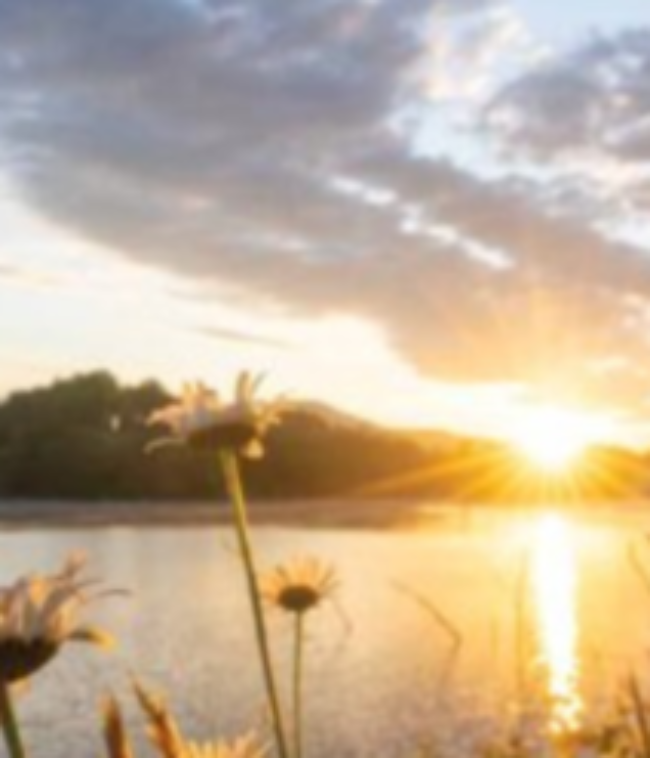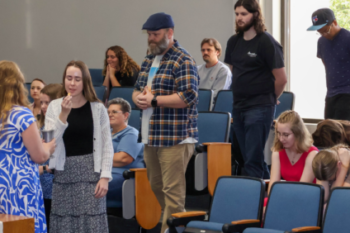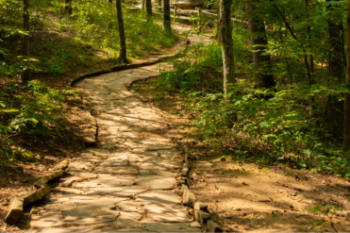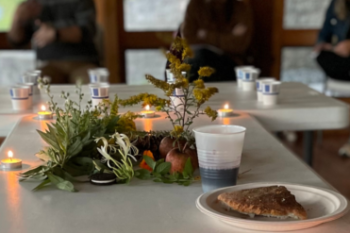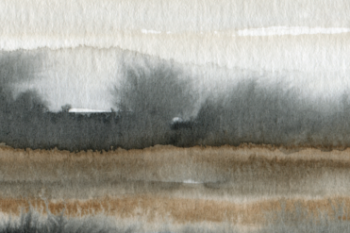Walking the Way of Jesus with Indigenous Neighbors
Navigating diverse cultural settings feels natural to me these days. I am a citizen of the US, of the Cherokee Nation, and of the Kingdom of God. For years, I lived in an African village, spoke a local language, worshiped and worked with Maasai neighbors. Recently, I have begun to interact with a seminary founded by Native Americans. All this has caused me to pay attention to places where indigenous patterns of spirituality and the way of Jesus intersect. Allow me to share a few.
Time and Space are Sacred
Indigenous people share a sense that all time and space is sacred, filled with the presence of the Creator. A grove of trees can be a sanctuary; washing the dishes can become prayer. Choctaw elder (and Episcopal bishop) Steven Charleston writes:
In traditional Native life, religion was a daily experience. Native people woke in prayer, went through their daily routine in a sacred manner, and ended the day in prayer. Life was religion. There were special ceremonies, of course, and unique moments like birth and death, but these were all woven into the fabric of an everyday spiritual life. There was no special day set aside to do “church.” All days were equally precious, equally holy. This everyday sense of the sacred, which is what Native people believe will continue after death, means that the holy is accessible to everyone, everywhere, at every time. (The Four Vision Quests of Jesus, p. 98)
Rosalie Little Thunder of the Sicangu Lakota takes this a little further, pointing out how her people identify themselves as “common humans,” connected to and equal to all living things. Among these “living things” are animals, elements, land, trees, and sky. She writes: “This concept may escape the comprehension of those who have been conditioned in the hierarchy that the human is above all. (And in what boat did we paddle to such arrogance?) Our spirituality is shaped around our relationships with all that is; our relationship of equality with the natural world, all living things, with each other, within ourselves, and with the Creator. (In Wilma Mankiller’s Every Day is a Good Day)
Didn’t Jesus walk this same path of wisdom when he upset religious authorities by treating all days like sabbath days, or when he encouraged folks to pay attention to the birds of the air, the flowers in the field, the signs in the sky, and the trees and the vineyards? Don’t we sense that things have gone awry when we are forced to think one way at work and another when we worship? Or when we come to believe that Jesus’ teachings on possessions or violence or service just don’t work in the “real world”?
We Belong to a Wide Family
A second path of wisdom from Native societies teaches us that we belong to one another. Steven Charleston writes: One of the most important distinctions between traditional Native American societies and European societies is this difference between individuality and individualism. Native Americans embrace individuality, but abhor individualism … .when a person loses their priority for living in community then they have broken the most sacred bond set down by God at the time of creation. The interrelatedness of all things, the kinship of humanity, and the sacredness of each person as a vital part of the whole are the foundational values of God’s original covenant with native America that must never be violated. Traditional native America is built on the ‘we,’ not on the “I.” God is the only singular. All the rest of creation is plural. (The Four Vision Quests, p. 101)
Life in community is how we live out the gospel. The scriptures are filled with injunctions that we keep together as we seek to live in harmony with one another. We find the Greek word “allelon,” which means “one to another, each other; mutually, reciprocally,” over 100 times in the New Testament. “Help one another… encourage one another… share with one another… confess your sins to one another,” and on and on the scriptures advise.
Do you walk life’s pathways in community, or are you constantly alone? Find your place in the wide family of God. It is at times messy and inconvenient and uncomfortable, but it is also the only way to live a productive life. Finding your place in the body of Christ takes a lifetime to figure out, but that’s the point, isn’t it? We’re all in this together, and that’s good news.
Walk and Watch Together. You will See the Beauty of God.
Paying attention to indigenous spirituality also strengthens my ability to serve as a mentor. In 2024, I received a Ministry Resource Center Mini Grant that enabled me to join a gathering of indigenous believers and leaders (NAIITS.org) who work to contextualize worship and discipleship in indigenous settings. This group puts a lot of emphasis on the presence of good mentors, both men and women, who help guide younger disciples of Jesus. In traditional cultures, those who undertook vision quests or chose to walk the ancient ways of knowledge always attached themselves to trusted mentors. These mentors watched over the lives of those in their care; they prepared them for the journey that was ahead; and they helped their mentees interpret what they experienced along the way. At this stage of my life and ministry, nothing is more important than walking with young ministers of Christ as they seek the ways of Jesus in this generation.
All of time and space is sacred. You are a beloved part of the wide family of Creation. You have gifts and wisdom to share and good work to do. May you walk in beauty this day.
